Filter by
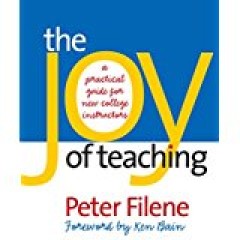
The joy of teaching: a practical guide for new college instructors
Gathering concepts and techniques borrowed from outstanding college professors, The Joy of Teaching provides helpful guidance for new instructors developing and teaching their first college courses. Award-winning professor Peter Filene proposes that teaching should not be like a baseball game in which the instructor pitches ideas to students to see whether they hit or strike out. Ideally, he s…
- Edition
- -
- ISBN/ISSN
- 9780807856031
- Collation
- xii, 160 p. : ind. ; 22 cm.
- Series Title
- -
- Call Number
- 378.12 Fil j
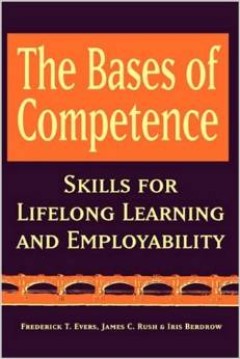
The bases of competence : skills for lifelong learning and employability
The Bases of Competence explains what skills and competencies students need to succeed in today's workplace and details how colleges and universities can strengthen the curriculum to cultivate these skills in their undergraduate students. The book addresses the continuing disparity between the skills developed in college and the essential skills needed in the dynamic workplace environment. By p…
- Edition
- -
- ISBN/ISSN
- 9780787909215
- Collation
- xxviii, 273 p. : ill. ; 24 cm.
- Series Title
- -
- Call Number
- 378.013 Eve b
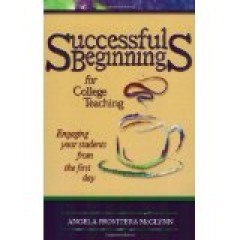
Successful beginnings for college teaching : engaging your students from the …
Laying the groundwork for a successful semester starts with the first day of class. Author Angela Provitera McGlynn tells that the first day is not the day to pass out a syllabus and let everyone go. Rather, it's the day to set the context for the rest of the semester. The author stresses the need for developing an atmosphere of respect for diversity while simultaneously providing a safe and e…
- Edition
- -
- ISBN/ISSN
- 9781891859380
- Collation
- 157 p. : ill. ; 23 cm.
- Series Title
- -
- Call Number
- 378.125 Pro s
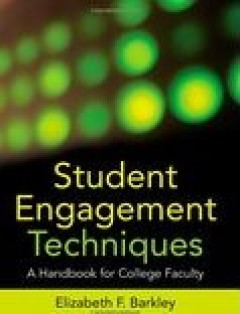
Student engagement techniques : a handbook for college faculty
Keeping students involved, motivated, and actively learning is challenging educators across the country,yet good advice on how to accomplish this has not been readily available. Student Engagement Techniques is a comprehensive resource that offers college teachers a dynamic model for engaging students and includes over one hundred tips, strategies, and techniques that have been proven to help t…
- Edition
- -
- ISBN/ISSN
- 9780470281918
- Collation
- xv, 398 p. : ill. : ind. ; 28 cm.
- Series Title
- -
- Call Number
- 378.125 Bar s

On course : a week-by-week guide to your first semester of college teaching
You go into teaching with high hopes: to inspire students, to motivate them to learn, to help them love your subject. Then you find yourself facing a crowd of expectant faces on the first day of the first semester, and you think “Now what do I do?” Practical and lively, On Course is full of experience-tested, research-based advice for graduate students and new teaching faculty. It provides…
- Edition
- -
- ISBN/ISSN
- 9780674047419
- Collation
- viii, 320 p. ; 21 cm.
- Series Title
- -
- Call Number
- 378.12 Lan o
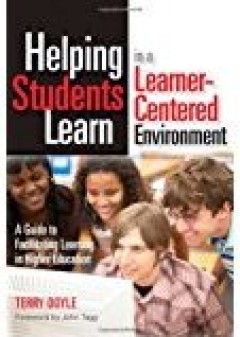
Helping students learn in a learner-centered environment : a guide to facilit…
Before entering higher education, most students’ learning experiences have been traditional and teacher-centered. Their teachers have typically controlled their learning, with students having had little say about what and how to learn. For many students, encountering a learner-centered environment will be new, possibly unsettling, and may even engender resistance and hostility. Taking as his…
- Edition
- -
- ISBN/ISSN
- 9781579222222
- Collation
- xviii, 194 p. ; 23 cm.
- Series Title
- -
- Call Number
- 378.17 Doy h
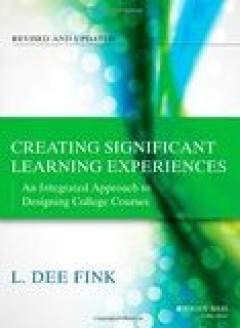
Creating significant learning experiences : an integrated approach to designi…
This edition addresses new research on how people learn, active learning, and student engagement; includes illustrative examples from online teaching; and reports on the effectiveness of Fink's time-tested model. Fink also explores recent changes in higher education nationally and internationally and offers more proven strategies for dealing with student resistance to innovative teaching. Ta…
- Edition
- -
- ISBN/ISSN
- 9781118124253
- Collation
- xviii, 334 p. : ill. : ind. ; 24 cm.
- Series Title
- -
- Call Number
- 378.1 Fin c

Classroom assessment techniques : a handbook for college teachers
How well are college students learning? How effectively are faculty teaching? Teachers themselves are the closest observers of learning as it takes place in their classrooms--and thus have the opportunity to become the most effective assessors and improvers of their own teaching. But in order for teaching to improve, teachers must first be able to discover when they are off course, how far off …
- Edition
- 2nd
- ISBN/ISSN
- 9781555425005
- Collation
- xx, 427 p. : ill. : ind. ; 28 cm.
- Series Title
- -
- Call Number
- 378.125 Ang c
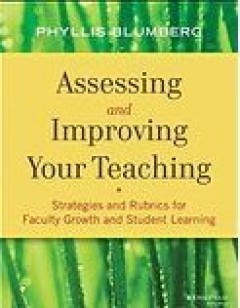
Assessing and improving your teaching : strategies and rubrics for faculty gr…
In order to make appropriate changes to improve your teaching and your students’ learning, first you need to know how you’re teaching now. Figure it out for yourself and invigorate your teaching on your own terms! This practical evidence-based guide promotes excellence in teaching and improved student learning through self-reflection and self-assessment of one’s teaching. Phyllis Blum…
- Edition
- -
- ISBN/ISSN
- 9781118275481
- Collation
- xiii, 336 p. : ill. : ind. ; 28 cm.
- Series Title
- -
- Call Number
- 371.102 Blu a
 Computer Science, Information & General Works
Computer Science, Information & General Works  Philosophy & Psychology
Philosophy & Psychology  Religion
Religion  Social Sciences
Social Sciences  Language
Language  Pure Science
Pure Science  Applied Sciences
Applied Sciences  Art & Recreation
Art & Recreation  Literature
Literature  History & Geography
History & Geography